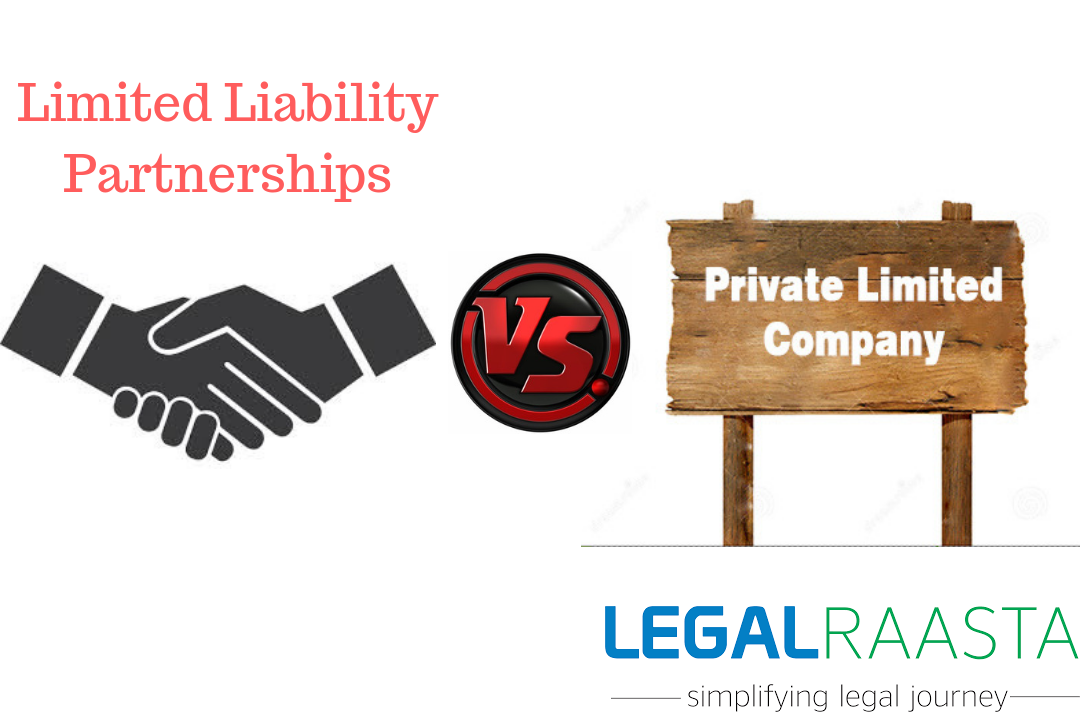What is LLP registration?
The Limited Liability Partnership (LLP), which combines the benefits of a corporation and a partnership firm into one form of organisation, has become increasingly popular among business owners. A partnership firm and a business are combined to form an LLP. At least one of the chosen partners must reside in India, and at least two of the partners must be individuals. However, there is no maximum number of partners that an LLP can have. The LLP agreement sets forth the duties and privileges of the selected partners. In this blog, we will cover the concept of
LLP Registration as well as how to create an LLP and the paperwork required for LLP.
What is LLP registration?
The process for forming a Limited Liability Partnership is called
LLP Registration. It falls under the 2008 Limited Liability Partnership Act because it is a corporation. Compared to corporate body registration,
LLP Registration has less compliance requirements. The only difference between an LLP and a partnership is that the latter has unlimited liability. Being a hybrid of the two, an LLP combines the benefits of "a business and a partnership."
Characteristics of LLP Registration
- Each partner's responsibility is limited to the amount of their contribution, it has a separate legal identity, and there are fewer regulations and compliance requirements.
- A little cost can be paid to form an LLP, and no minimum capital contribution is required.
- An LLP must have a minimum of two chosen partners who are individuals, at least one of whom must reside in India.
Benefits of LLP Registration
- Separate legal entity: An LLP is distinct from its partners and is a separate legal entity. An LLP can file lawsuits and be sued in its own name, and contracts are signed under the LLP's name, which helps the business win over the trust of numerous stakeholders and inspires confidence in its clients.
- Limited liability: The registered LLP partners are subject to limited liability, which means they are only liable for the contributions they made and are not held personally liable for any business losses. If an LLP is being wound up, only its assets are accountable for covering its debts if it becomes insolvent. And not every partner is personally responsible for payment.
- Cost-effectiveness and reduced compliance: An LLP can be formed for less money than a public or private limited company, and it must also comply with fewer regulations.
- Minimum capital commitment: There is no requirement for a minimum capital commitment when forming an LLP. Any amount of capital that the partners contribute can be utilized to form it since there is no minimum paid-up capital requirement prior to incorporation.
Steps to form an LLP
- Obtain a certificate for a digital signature (DSC): You must apply for the selected partners of the proposed LLP's digital signature before starting the registration process. This is due to the fact that all LLP paperwork must be digitally signed and are filed online. Depending on the certifying organization, DSC varies in price.
- Application for Director Identification Number (DIN): All designated partners or those planning to become designated partners of the proposed LLP must submit applications for their DINs. The Form DIR-3 must be used to submit the request for the allocation of a DIN. Aadhaar and PAN are the two documents that must be scanned and attached to the form.
- Name Approval: It is recommended that you use the free name search facility on MCA portal for checking the reservation of name of LLP.The system will provide the list of existing companies or LLPs based which helps you in choosing names not similar to already existing names.
- LLP incorporation: It is necessary to file the FiLLiP (Form for incorporation of Limited Liability Partnership), which is an integrated form, with the Registrar who has authority over the state where the LLP's registered office is located. If the name for which an application is made is accepted, this approved and reserved name must be used as the LLP's proposed name.
- Limited Liability Partnership (LLP) Agreement: The LLP agreement sets down the rights and obligations that each partner has toward the other as well as toward the LLP and its partners. A three-year online MCA Portal filing is required for the LLP agreement. The LLP agreement Form 3 must be submitted within 30 days of the formation date. The stamp paper that must be used to print the LLP Agreement varies by state.
Documents Required for LLP Registration
- It is necessary to have a copy of each partner's PAN card.
- An address or identity evidence, such as a passport, election card, voter identity card, ration card, driver's licence, or Aadhaar card for Indian citizens.
- Two passport-size photographs • Utility bills from the firm site, such as electricity, telephone, gas, and mobile bills, as proof of the partner's ownership.
- If a rented premises agreement or property papers are required, along with the landlord's NOC.
- The passport must be notarized in the country where it was issued, be written in English, and include the recipient's birth date for foreign nationals.
- Complete the incorporation documents and have them certified by the Indian Embassy or a notary in the applicant's home country where the applicant is a direct citizen.
Conclusion
The idea behind an LLP is that one partner is not held accountable for the recklessness or wrongdoing of the other. Additionally, it enables the LLP's partners to run the business directly and offers limited liability protection for the owners against the LLP's obligations. In conclusion, as demonstrated in the prior essay, LLP registration has evolved into a need for early-stage businesses hoping to profit from tax incentives and registration advantages. The team of skilled professionals at LegalRaasta is always available to assist and counsel you. While you focus on what you do best, let our professionals handle your
LLP Registration and Company Compliances.
Please get in touch with LegalRaasta for further details on the documentation requirements, process, and features for
LLP Registration.









